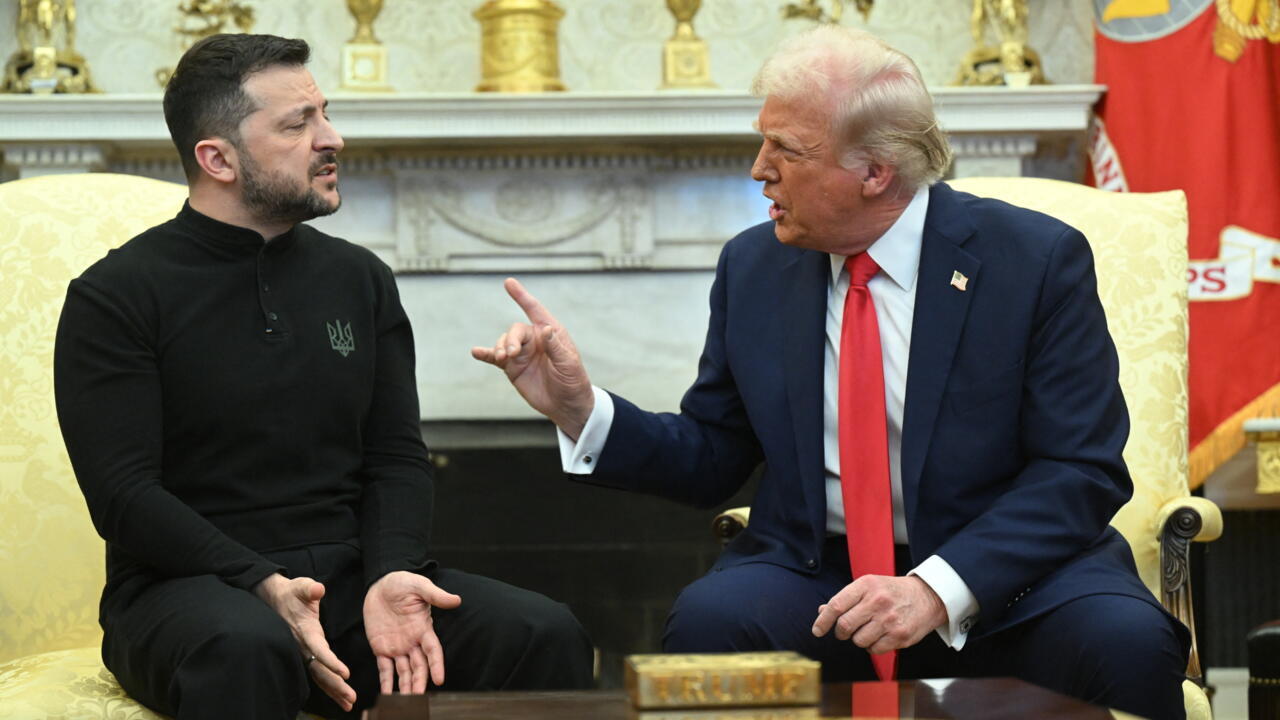NATO Summit Reveals Deep Rifts as Trump and Zelensky Face Off Over Ukraine Strategy
The NATO summit has exposed critical divisions in Western strategy towards Ukraine, with Trump's ambiguous stance on collective defence and Washington's reluctance to impose new sanctions on Russia causing serious concern. Zelensky's increasingly isolated position highlights the growing gap between democratic rhetoric and strategic action.

President Zelensky and Donald Trump during tense NATO summit discussions
Washington's Sanctions Hesitancy Raises Alarm
In a concerning development that echoes the diplomatic failures of the 1930s, Washington's reluctance to implement new sanctions against Russia has sparked serious concern among European allies. Senator Marco Rubio's confirmation of this stance, ostensibly to maintain diplomatic channels, has been met with growing frustration in European capitals and dismay in Kyiv.
Trump's Militaristic Rhetoric Masks Strategic Ambiguity
The former president's demands for NATO members to increase military spending to an unprecedented 5% of GDP belies a troubling ambivalence towards collective defence commitments. His conspicuous silence on Article 5 - NATO's foundational mutual defence clause - signals a dangerous shift from alliance solidarity to transactional diplomacy.
Zelensky's Isolated Stand for Democracy
Zelensky's urgent appeals for enhanced air defence systems and stricter economic measures against Moscow highlight the growing gulf between Ukraine's existential needs and Western strategic hesitation. His warnings about Russian expansionism testing NATO's resolve deserve serious consideration, particularly given recent historical parallels.
A Summit of Missed Opportunities
The much-anticipated Trump-Zelensky meeting, lasting barely an hour, epitomised the summit's broader failures. Trump's dismissive characterisation of Zelensky as merely a 'good guy' while avoiding substantive commitments reflects a concerning pattern of Western equivocation in the face of authoritarian aggression.
Echoes of Pre-War Europe
The current geopolitical configuration - featuring an aggressive power, ongoing military conflict, and a wavering alliance - presents disturbing parallels with 1930s Europe. While democratic intentions remain robust, the lack of coordinated action threatens to undermine collective security architecture.
Democratic Values at Stake
As the summit concludes without meaningful progress, the implications for liberal democracy in Eastern Europe hang in the balance. The failure to present a united front against Russian aggression risks emboldening autocratic forces and weakening the rules-based international order that has sustained peace for generations.
Thomas Reynolds
Correspondent for a London daily, specialist in British foreign policy and transatlantic issues.
